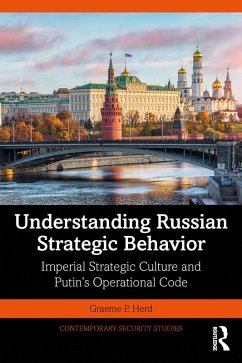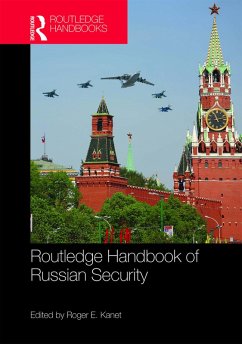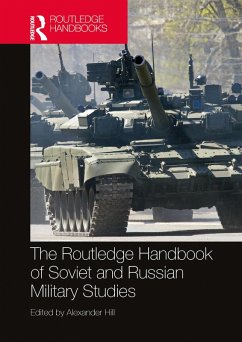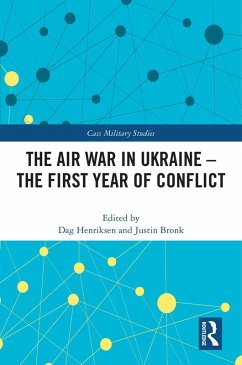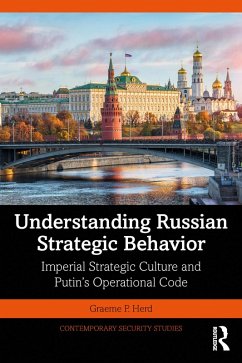
The Russia-Ukraine War (eBook, PDF)
Towards Resilient Fighting Power
Versandkostenfrei!
Sofort per Download lieferbar
106,95 €
inkl. MwSt.
Weitere Ausgaben:

PAYBACK Punkte
53 °P sammeln!
This book provides a systematic analysis of the Russian-Ukraine war, using the concept of resilient fighting power to assess the operational performance of both sides during the first year of the full-scale invasion.The Russian war in Ukraine began in 2014 and continued for eight years, before the full-scale invasion of 24 February 2022. It is not a new war, but the intensity of the warfighting revived many discussions about the conduct of inter-state warfare, which has not been seen in Europe for decades. This book does not aim to offer an exhaustive operational analysis of the war, but rathe...
This book provides a systematic analysis of the Russian-Ukraine war, using the concept of resilient fighting power to assess the operational performance of both sides during the first year of the full-scale invasion.
The Russian war in Ukraine began in 2014 and continued for eight years, before the full-scale invasion of 24 February 2022. It is not a new war, but the intensity of the warfighting revived many discussions about the conduct of inter-state warfare, which has not been seen in Europe for decades. This book does not aim to offer an exhaustive operational analysis of the war, but rather provides a preliminary systematic analysis across various domains of warfare using the concept of fighting power to assess the operational performance of both sides. First, the book discusses the conceptual component and the post-Cold War adaptations of the Soviet strategic tradition by both the Ukrainian and the Russian Armed Forces. Following that, it gives an evaluation of the various aspects of warfighting in the land, air, maritime and cyber domains. Then, the book examines the role of international allied assistance, sanctions and weapons delivery in strengthening the resilience of the Ukrainian Armed Forces. The book concludes with some comments on the role of inter-state warfare in the current strategic environment and future warfare.
This book will be of much interest to students of military and strategic studies, defence studies, foreign policy, Russian studies and international relations.
The Open Access version of this book, available at http://www.taylorfrancis.com, has been made available under a Creative Commons Attribution-Non Commercial-No Derivatives (CC-BY-NC-ND) 4.0 license.
The Russian war in Ukraine began in 2014 and continued for eight years, before the full-scale invasion of 24 February 2022. It is not a new war, but the intensity of the warfighting revived many discussions about the conduct of inter-state warfare, which has not been seen in Europe for decades. This book does not aim to offer an exhaustive operational analysis of the war, but rather provides a preliminary systematic analysis across various domains of warfare using the concept of fighting power to assess the operational performance of both sides. First, the book discusses the conceptual component and the post-Cold War adaptations of the Soviet strategic tradition by both the Ukrainian and the Russian Armed Forces. Following that, it gives an evaluation of the various aspects of warfighting in the land, air, maritime and cyber domains. Then, the book examines the role of international allied assistance, sanctions and weapons delivery in strengthening the resilience of the Ukrainian Armed Forces. The book concludes with some comments on the role of inter-state warfare in the current strategic environment and future warfare.
This book will be of much interest to students of military and strategic studies, defence studies, foreign policy, Russian studies and international relations.
The Open Access version of this book, available at http://www.taylorfrancis.com, has been made available under a Creative Commons Attribution-Non Commercial-No Derivatives (CC-BY-NC-ND) 4.0 license.
Dieser Download kann aus rechtlichen Gründen nur mit Rechnungsadresse in A, B, BG, CY, CZ, D, DK, EW, E, FIN, F, GR, HR, H, IRL, I, LT, L, LR, M, NL, PL, P, R, S, SLO, SK ausgeliefert werden.





